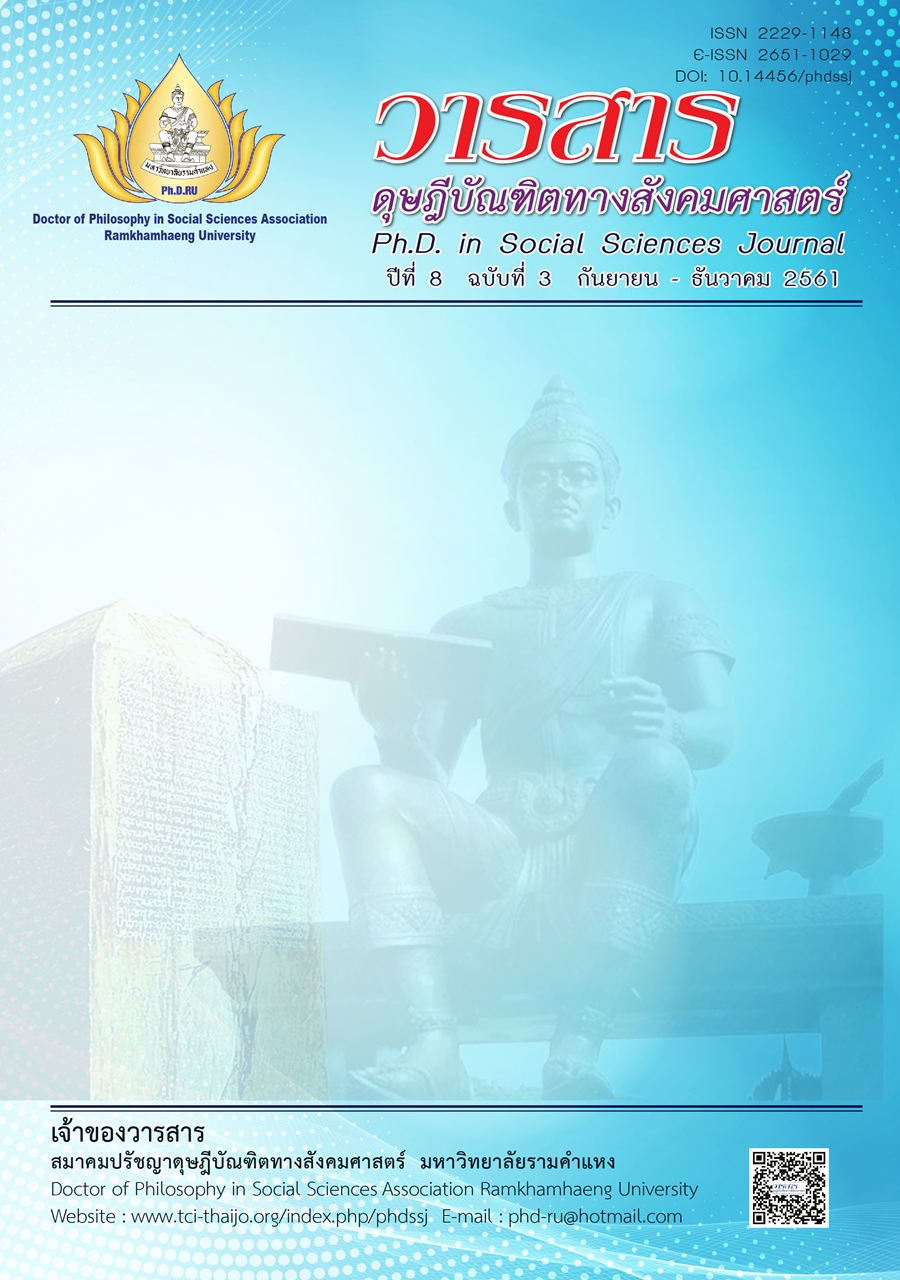The Development of Structural Model of Factors Influencing Customer Satisfaction for Frozen Seafood Business in Thailand
Main Article Content
Abstract
The purpose of this research to find out the model of the factors affecting customer service and satisfaction in seafood: frozen business in Thailand. This research offered quantitative research methods into the study. The quantitative research is carried out 400 samples of cold chain logistics services. The data were collected by questionnaire and key informant interview. The statistics employed in the research are frequency, percentage, mean, standard deviation, Confirmatory Factor Analysis (CFA), and Structural Equation Model (SEM).
The results indicated that the factors affecting customer service and satisfaction in seafood: frozen business in Thailand was management system, quality control and status, and logistic efficiency. The results found that the most important components was the management system in term of temperature management in the warehouse, the quality control and status in term of warehouse and containerization temperature, and the logistic efficiency in term of reliability which the logistic efficiency in term of product services. The constructed model was good fitted with the empirical data (Chi square/df = 1.46, p-value = 0.00889, RMSEA = 0.031, GFI = 0.98, AGFI = 0.95).
Article Details
Academic articles, research articles, and book reviews in the Ph.D. in Social Sciences Journal are author’s opinions, and not the publisher’s, and is not the responsibility of the Ph.D. in Social Sciences Journal Philosophy Association, Ramkhamhaeng University. (In the case that research is done on human, the researcher has to be trained in Ethics for Doing Research on Human Training and has to produce the evidence of the training).
References
Bureau of Logistics. (2017). Supply chain. Bangkok: Department of Primary Industries and Mines. [In Thai]
Hair, J. F., Black, W. C., Babin, B. J., & Anderson, R. E. (2010). Multivariate data analysis (7th ed.). London: Pearson.
Hitt, M. A., Black, J. S., & Porter, L. W. (2012). Management (3rd ed.). London: Pearson.
JET8 (Thailand). (2017). Safe keeping of goods. Retrieved March 31, 2018, from https://jetate.com/security. [In Thai]
Logistics Bureau. (2017). Supply chain. Bangkok: Department of Primary Industries and Mines. [In Thai]
Ministry of Commerce. (2016). International trade condition. Retrieved March 31, 2018, from https://www.depthai.go.th. [In Thai]
Nakrit, J. (2017). RFID with moving goods. Retrieved March 31, 2018, from https://jiradabbc.wordpress.com/rfid [In Thai]
Sirilert, T. (2007). Texture evaluation in food. Journal of Food Technology, Siam University, 3(1), 6-13. [In Thai]
Sereerat, S. (1995). Marketing management. Bangkok: Phatthana Sueksa Printing House. [In Thai]
Sinlaparatanaporn, S. (2011). Development of food inventory with barcode. Master's thesis engineering management, Srinakharinwirot University. [In Thai]
Vanichbuncha, K. (2009). Statistics for research (4th ed.). Bangkok: Chulalongkorn University Press. [In Thai]
Wall Technology Co., Ltd, (2017). GMP and HACCP how important is food and cold storage? Retrieved March 31, 2018, from https://www.wtg.co.th/index.php/th/news/knowledge-insulated-gmphaccp.html [In Thai]


